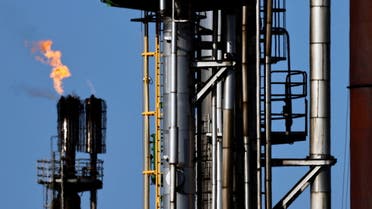The Russian government confirmed on Thursday it will impose a six-month ban on gasoline exports from March 1 to keep prices stable.
“The decisions taken are aimed at maintaining a stable situation in the fuel market during the period of increased demand associated with spring field works, the holiday season and scheduled repairs of refineries,” the government said on its official Telegram channel.
Russia is the world’s second largest oil exporter.
A spokeswoman for Deputy Prime Minister Alexander Novak, President Vladimir Putin’s point man for Russia’s vast energy sector, confirmed on Tuesday that such a ban would be introduced.
Domestic gasoline prices are sensitive for motorists and farmers in the world’s biggest wheat exporter ahead of a March 15-17 presidential election, while some Russian refineries have been hit by Ukrainian drone attacks in recent months.
Russia and Ukraine have targeted each other’s energy infrastructure in a bid to disrupt supply lines and logistics and demoralize their opponents, as they seek the edge in a nearly two-year-old conflict that shows no sign of ending.
Exports of oil, oil products and gas are by far Russia’s biggest export, a major source of foreign currency revenue for Russia’s $1.9 trillion economy, and ensure that Moscow has a place at the top table of global energy politics.
Russia is already voluntarily cutting its oil and fuel exports by 500,000 barrels per day in the first quarter as part of OPEC+ efforts to support prices.
